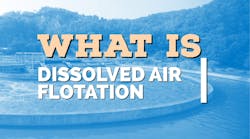Joe Gysel testified on behalf of EPCOR Water U.S.A., Inc. and The National Assn. of Water Companies (NAWC) before the Senate Committee on Environment and Public Works.
During the hearing entitled, “The Federal Role in Keeping Water and Wastewater Infrastructure Affordable,” Gysel, president of EPCOR Water U.S.A., Inc., discussed the state of the nation’s water infrastructure, public-private partnerships in the water sector and the role of private water management companies, including investor-owned utilities. He also commented on the role the federal government can play in stimulating much-needed investment in the systems that deliver this critical resource.
The vast unseen network of pipes, pumps, valves, tanks and water treatment facilities that comprise our nation’s water infrastructure is as essential to life as the millions of gallons of water it delivers each day. Most of America’s water systems consistently deliver water 24 hours a day, seven days a week—a remarkable accomplishment under normal operating conditions. But today, many of those systems are aging, stressed and in dire need of repair and replacement.
Explaining the role NAWC member companies play in assisting communities facing water challenges, Gysel pointed to the unique strengths and operational acumen of the private sector.
“NAWC members have the best compliance track record in the industry. A 2011 survey by American Water Intelligence of EPA Safe Drinking Water Act violations for the previous five years found over 2,900 sites in violation among government-owned systems—only 14 violations were found among regulated private utilities. Given the private industry’s expertise and exemplary compliance record, NAWC members are often asked by state regulators to revitalize non-compliant public systems," said Gysel.
Gysel continued, “Our member companies have longstanding experience with public-private partnerships (P3s) which deliver benefits to communities by combining the best practices, skills, assets and resources of both government and private sectors to deliver superior water service or efficiently maintain a water facility to meet the growing demands of citizens. P3s can reduce municipal costs and shift debt burdens allowing municipalities the ability to address other important city priorities.”
According to Gysel’s testimony: “Private companies have entered into more than 2,000 such P3s.”
Gysel also offered solutions on how communities could use federal tools for infrastructure projects with changes to federal regulations stating, “One of the most effective financing tools of the federal government for long-term, capital-intensive infrastructure projects is the private activity bond (PAB)—tax exempt financing granted to the private sector for public-purpose projects, like water. The PAB is a critical tool water and wastewater systems need and use for drinking water and wastewater projects. PABs make infrastructure repair and construction more affordable for municipalities and ultimately for users or customers. The use of PABs spurs capital investment in public projects during a time when governmental budgets are tight; and investors prefer PABs because interest accrues tax-free.”
Source: NAWC


